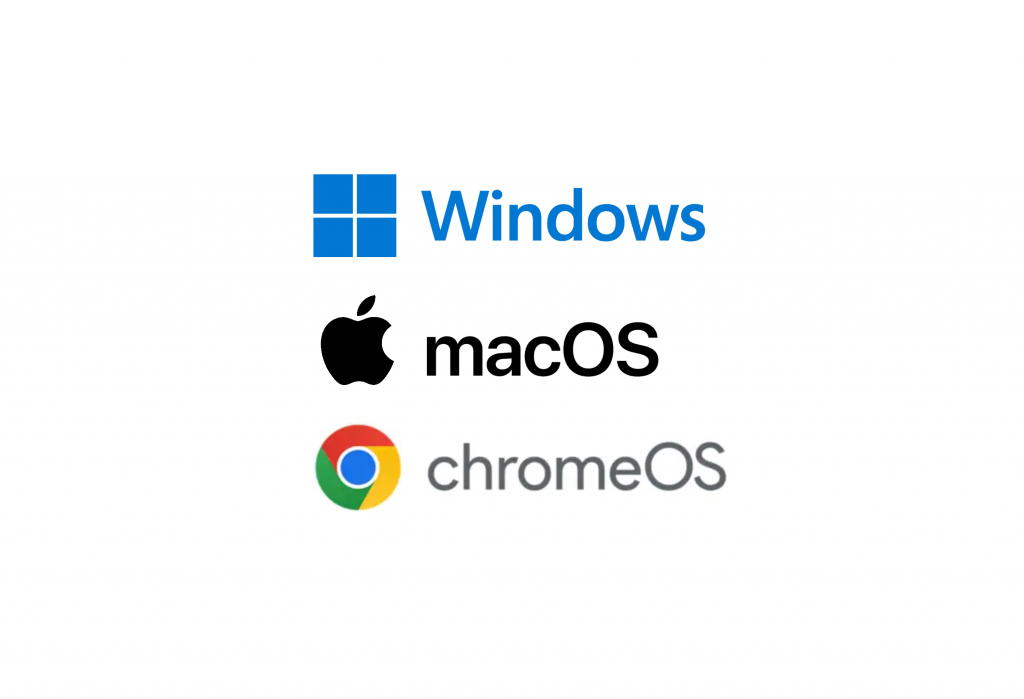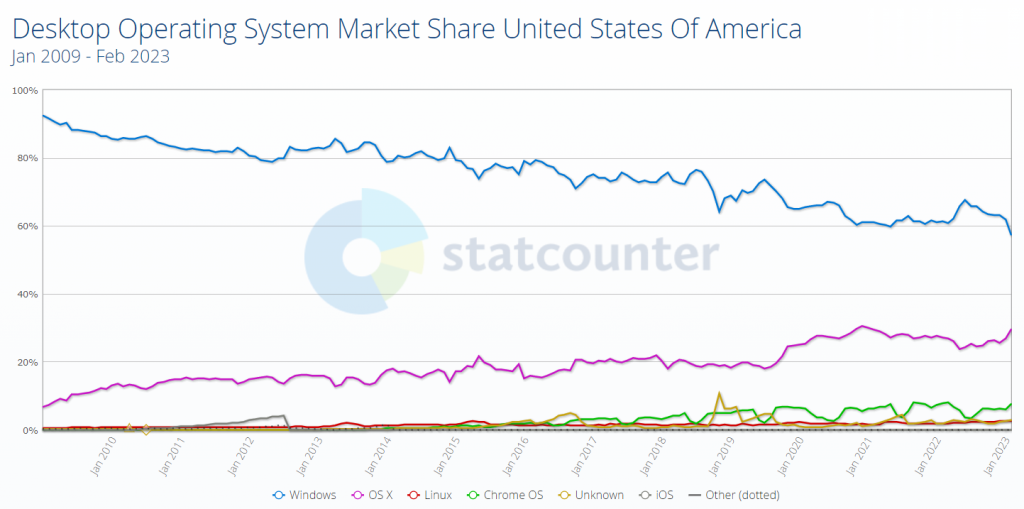Microsoft’s Windows has always dominated the desktop OS space globally, as the operating system is widely available with many PC manufacturing partners such as Dell, HP and Lenovo. However, a recent trend shows that Windows, the operating system by Microsoft, is rapidly losing popularity in the US, due to the rise of macOS and ChromeOS in the country.

The data comes from Statcounter by GlobalStats, which shows that Windows has dropped to a historic low desktop OS market share of 57.37% in the United States of America in February 2023, a far cry from its all-time high of 92.37% in January 2009. And the trend line does not show signs of slowing down, as Windows is expected to lose more market share in the country throughout 2023.
The rapid drop in market share can be attributed to stiff competition from its competitors, which are macOS from Apple, and Chrome OS from Google. As of February 2023, Windows holds 57.37% of the desktop OS market in the US, macOS holds 29.62% and Chrome OS holds 7.47%. Linux holds 2.55%, whereas other miscellaneous desktop operating systems hold 2.97%.

The rising popularity of macOS and ChromeOS is definitely one cause of Windows’ current downtrend. macOS is routinely found in Apple’s Macbooks and Mac Desktop lineup, such as the Mac Mini, Mac Studio, Macbook Pro and Macbook Air. And with the introduction of Apple SIlicon in 2020, the general public was very shocked by the improved performance and staggering battery life that Apple Macbooks offered over their Intel CPU-powered predecessors.
In turn, many previously Windows laptop users jumped ship over to Apple for superior battery life and faster CPU performance for their workload. However, the wave of Windows users jumping over to Apple seems gradual as it took until 2023 to see a significant change in the market.
As for the rise in Chrome OS, Chromebooks are normally offered in pre-K, primary and secondary educational institutions in the US in the 2010s. Students studying in those institutions have grown up into adults today, and they are more familiar with Chromebooks compared to Windows devices, and would suggestively buy something that they are more accustomed to than one that they are a stranger to.
In addition, Chromebooks are generally cheaper in the laptop market than Windows laptops, leading to many schools buying Chromebooks in bulk for cheap, or either a typical family buying a Chromebook for their child as a first laptop experience because it is more affordable.
Thus, it is clearly seen that Microsoft’s monopoly on the desktop market with Windows is starting to lose its momentum as competition heats up. And recent announcements such as adding Bing to Windows 11, and leaked documents suggesting Windows 12 show that Microsoft is currently developing something in-house to compete with Apple and Google soon.
RELATED:
- Intel & Microsoft Are Preparing for Windows 12 as Per Latest Leaks
- Microsoft Loosens Bing ChatGPT Limit to 8 Turns Per Conversation, Alongside New Turn Counter Feature
- OnePlus Ace 2 (11R) is now available on Giztop for $499
(Source)





